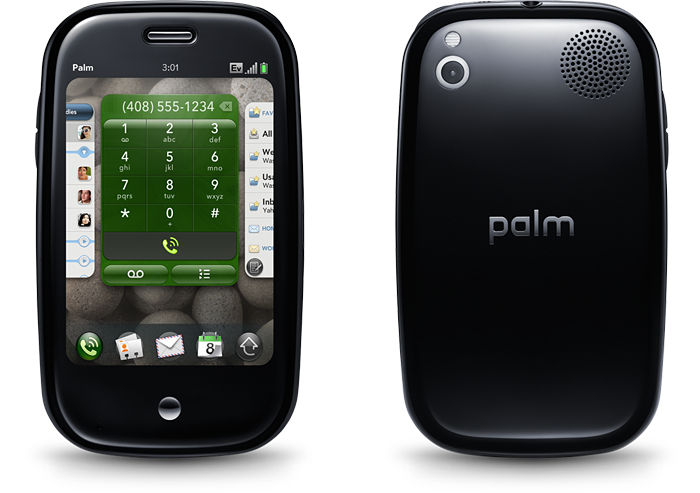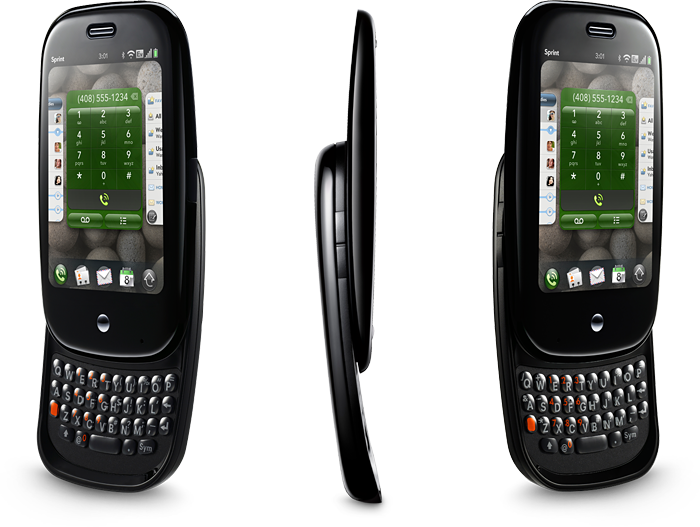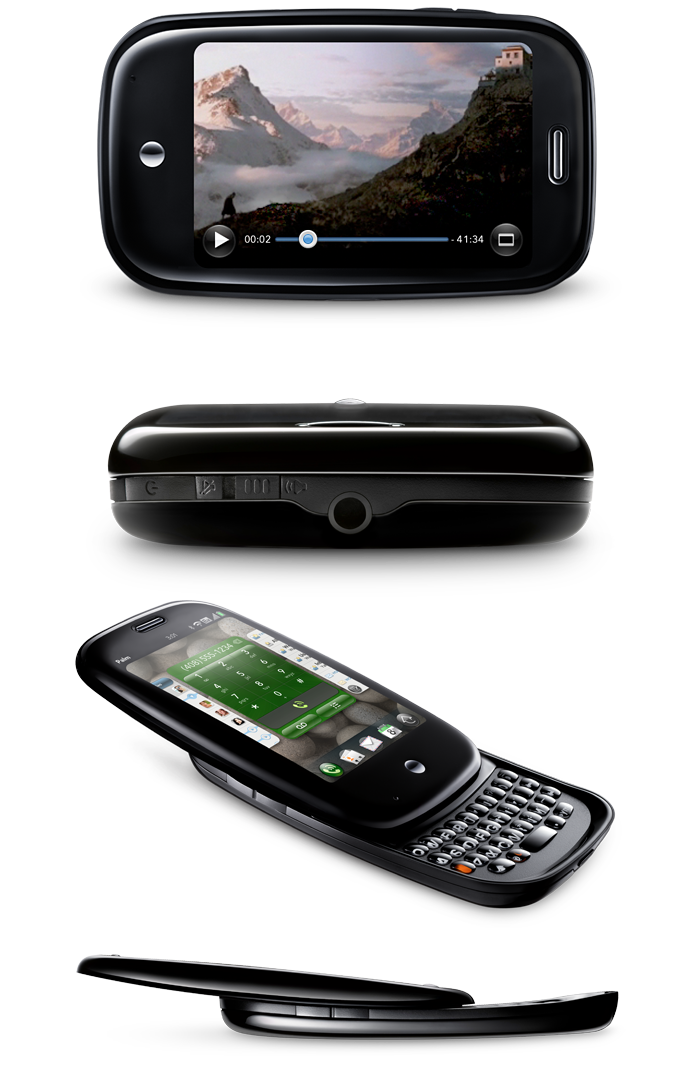Corporate legal scrambles to withdraw inflated Palm Pre claims
McNamee is the managing director and co-founder of Elevation Partners, a private equity firm that invests in intellectual property and media and entertainment companies. The firm is also associated with U2 pop singer Bono (taking its name from a U2 song) and hired Apple's former CFO Fred Anderson after he left following the SEC's investigation into options backdating.
Elevation Partners invested $325 million in Palm in 2007, taking a 25% stake of the company as it struggled to find capital. That year, Palm lost over $100 million on revenues of $1.32 billion after canceling its Foleo netbook project, witnessing the collapse of PDAs, and failing to find much success in selling Palm OS devices following the spinoff of its operating system business in 2002 and the subsequent relicensing of the Palm OS from that independent group for $44 million in December 2006.
A year and a half after Elevation's initial bailout, and shortly before the announcement of the new Palm Pre (pictured below), Elevation invested another $100 million to shore the company up last December. With little steam left in Palm OS sales outside of profitless Palm Centro, delays killing the Palm Treo Pro, and intense competition from the iPhone, Elevation clearly needs to see excitement behind the Palm Pre if it ever hopes to get its nearly half a billion investment in Palm back.
It's therefore no surprise that McNamee would tout the future of the Pre. However, his comments in a Bloomberg interview went beyond optimism to bend the facts and generate such inflated hyperbole that his company and Palm were forced to release a reality check in the form of a free writing prospectus.
Minor clarifications issued
The document, filed under Securities Act Rules, first clarified a few minor overstatements about the market share of RIM's BlackBerry and Apple's iPhone. McNamee had cited 1.2% share for RIM and .9% for Apple, where the document notes that over the past two years, RIM's share is actually grew from 1.1 to 1.9%, and Apple's from 0.3% to 1.2%.
It also corrected McNamee's outlook for smartphones' share of the mobile market to reach “50% within 5 years,†noting instead that "one third party industry analyst report estimates smartphone share of the U.S. mobile phone market will reach 42.0% in 2012.
Interestingly, the context of McNamee's comments was to position the Pre as less of a direct competitor to more sophisticated smartphones such as the iPhone and BlackBerry, and more as another viable contender in the ongoing market shift from feature phones to smartphones. When asked whether Palm is a rival to Blackberry, McNamee said people are "right to think of it [the Palm Pre] as a rival, but the most important change that’s taking place, particularly if you’re an investor or a customer, is that we’re going from what are known as feature phones, the old 12-key phones that just make phone calls and send texts, to smart phones."
McNamee noted that the "fantastic for corporate e-mail" RIM BlackBerry and Apple's iPhone, "a device that’s fantastic for playing music or playing games," "aren’t really fighting each other; they’re really fighting folks like Motorola, Samsung, LG, Nokia, the people who make the old-fashioned phones." He hoped people would be "be just as excited about the Pre," without noting that it won't be fantastic for playing games like the iPhone.
Exaggerations dialed back
Beyond the few loose numbers McNamee gave off the top of his head, the real corrections his lawyers need to address related to his wilder statements, including the claim that the Palm Pre is “going to be a million times – well, not a million times – several times faster†than the iPhone and is “going to run rings around them [Apple] on the web.â€
In response to those claims, the legal filing instead noted that "the Palm Pre is still under development and it is premature to state the speed at which the device accesses the web or the relative speed of the Palm Pre compared to the smartphone products of competitors."
McNamee's comments about the Pre's web capabilities are particularly interesting given that the new smartphone will be using the open source Web Kit rendering engine that Apple itself uses and contributes toward. If Palm suddenly makes major advancements in web browsing, those enhancements should find their way back into the code Apple uses, just as Nokia and Google have similarly contributed to the open source Web Kit project. At the same time, Palm has never demonstrated any particularly expertise in the field of web browser rendering, delegating that task to third party developers instead. Much like RIM's BlackBerry Storm, the Palm Pre will essentially be reusing the iPhone's mobile browser engine, making it dubious to claim that it will be better in any sense.
Fanciful notions backpeddled
McNamee also claimed “there are aspects of the Pre that are unlike any phone you’ve every seen before,†“the Pre is the first one that is the next generation,†and “the result is it does a lot of things the others guys don’t do.†Those statements also elected a reply from his lawyers, who noted that "the Palm Pre is designed to be the first phone based on the Palm webOS platform and as a result will have different operating characteristics and features than other phones, however; the Palm Pre is still under development and it is premature to compare its full functionality with that of other phones."
While Palm hopes to release the entirely new webOS-based Pre by the end of 2009, the company earlier struggled to bring the less ambitious, Windows Mobile 6.1 Palm Treo Pro to market, missing its intended ship date of last fall and instead only launching earlier this month with Alltell; it is expected for delivery from Sprint next week. And despite referring to the Linux-based, netbook-like Foleo as a strategic product for the company, Palm gave up on that project entirely last year.
Lawyers also clarified that McNamee claims "regarding the relative development and stability of Sprint’s, Verizon’s and AT&T’s 3G networks are generalizations regarding wireless cellular network performance that may or may not be true depending on a variety of factors specific to geographic regions."
Outrageous hyperbole withdrawn
One of the most contentious claims McNamee made however, was that that “not one†person who bought the original iPhone “will still be using an iPhone a month†after its two-year anniversary, suggesting they would all defect to Palm's webOS platform. The lawyers said this was "an exaggerated prediction of consumer behavior pattern and is withdrawn."
McNamee also went out on a limb when he stated “the underlying technology for Research In Motion Ltd.’s BlackBerry is about 13 years old, while the technology behind the iPhone goes back almost nine years,†prompting the legal reply that "estimating one specific age for the many technology components underlying any mobile phone is inherently imprecise and these statements are withdrawn."
In the case of the iPhone, while its technological lineage can be traced back over nine years of Mac OS X development and even further to NeXTSTEP from the late 80s, and by a further stretch BSD UNIX from the 1970s, the key technologies that set the iPhone OS apart from a BSD or Linux-based smartphone are its modern Core Animation and Cocoa Touch interface, its state of the art HTML 5 web browser and JavaScript engines, its brand spanking new mobile software SDK that is less than a year old, and its regular firmware updates providing enhancements to everything from its 3G mobile networking to its leading software store downloads to security advancements, international support, power management, and so on.
Apple has consistently maintained a rapid pace of iPhone operating system development that has left Palm's historical efforts with the Palm OS in the dust, and has similarly embarrassed the perhaps once annually significant update that Microsoft rolls out for Palm's Windows Mobile phones. Apple has also outpaced Google's Android in significant updates over the past two years of parallel development, making it had to imagine how the struggling Palm, kept alive only by the investment grace of Elevation Partners' millions, will manage to outpace the leader in platform development using an entirely new operating system based largely upon the Web Kit software that is funded principally by Apple.
And finally, in regard to McNamee's claim that Palm’s new webOS would give it an edge over competitors that “are going to run out of gas way before†Palm, his legal team stated "estimations of the relative useful lifespan of smartphone operating systems are conjecture, unverifiable at this time, and age is not necessarily predictive of their relative long-term success." Really, if anyone runs out of gas in the smartphone race, it will be Palm once McNamee stops pumping hundreds of millions into the company to prevent its immediate collapse.
 Prince McLean
Prince McLean













 Mike Wuerthele
Mike Wuerthele

 Malcolm Owen
Malcolm Owen
 Chip Loder
Chip Loder

 William Gallagher
William Gallagher
 Christine McKee
Christine McKee
 Michael Stroup
Michael Stroup







